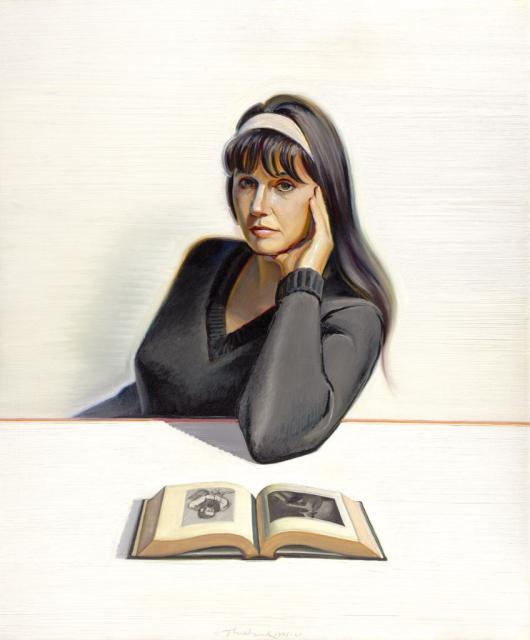Some days, the best of intentions fly out the window, and all I want to do is drink a buttery glass or two of white wine, stream episodes of Orange Is the New Black on Netflix, and take a long, luxurious nap. Who cares if it’s a Tuesday? As I’ve gotten older, I’ve learned to listen to that part of myself that is calling out for rest, for a day on the sofa in pajamas. I’ve decided to roll with these, to quote Pilgrim’s Progress, “Sloughs of Despond,” without (too much) self-judgment. Forget the gym. Forget returning emails with any semblance of timeliness. Forget the dishes waiting patiently in the sink. Forget it. Today I’m slothful, morose, and sleepy.
Since I’m of the literary persuasion, on days like this I need a poem that understands my predicament, that wallows with me, that raises its glass. Cheers. I need a Bad Girl Poem, like “St. Chardonnay” by Lisa Russ Spaar, from her latest book of poems Vanitas, Rough (Persea Books, 2012):
This is Bad Girl Poetry at its finest: sacrilegious, gorgeous, and honest. Here, the traditional form of the “saint’s life” is completely overhauled for the Bad Girl Poet’s singular poetic purposes. In this poem, the saint is golden Chardonnay, a “sacred force” in its own right. This Bad Girl Poet isn’t afraid to confess that her “self-pity go[es] down/ easy.” She doesn’t care what her readers may think of her (“Call me lonely. Anything/ you like.”). Earnestness, healthiness, empowerment? To this, the Bad Girl says, “Ha.” And, no, she doesn’t want to talk about it, doesn’t want “to talk at all.” Got it?
Yes, ma’am.
Recently, I’ve been rereading Spaar’s Vanitas, Rough, which Carole Muske-Dukes rightly calls “the work of a master.” Spaar is one of my favorite poets writing today; I often have her books on hand when I’m trying to write a new poem—her matchless music and wild play with diction always help me to put a few lines down. Indeed, as a lover of language, how can you not be inspired by lines like these (all excerpted from Vanitas, Rough)?
Don’t go, luxe archipelago
flush with swallows,
indigo island clouds,
raw, dank carousal
of privet hedge, bamboo.
Stars analect & blue. (“Dusk Binge”)
Or, these lines from “St. Tulip,” which upturn the old notion that April is the cruelest month:
Flamed bandana skulls,
stems tight in elastic bundle.
But over days, shiva-limbed,
sucking up water, they elongate,
ambrosial pneumatics. Mercurial.
Writing in the lineage of Emily Dickinson and Gerard Manley Hopkins, Spaar’s poems feel close to prayer, utterly human, ecstatic. They jump from the everyday—the gym, an undergrad’s overheard cell phone conversation, stadium lights—to God hunger, Death, and Time. She’s the most lovely Bad Girl Poet you’ll ever find, companion for both your praiseful Sunday and your petulant Tuesday.
Go on. Read, indulge. Because reading Bad Girl Poetry is like listening to the blues: you feel so bad, baby, you feel good.
 (P.S. If you’re on the lookout for more Bad Girl Poets to match your bad attitude, I recommend Brenda Shaughnessy’s Human Dark with Sugar, Suzanne Buffam’s The Irrationalist, anything by Anne Sexton, Maggie Nelson’s Bluets, Lucie Brock-Broido’s The Master Letters, and Jeanette Winterson’s Why Be Happy When You Could be Normal? Admittedly Winterson writes prose, but she’s got a Bad Girl Poet’s heart.)
(P.S. If you’re on the lookout for more Bad Girl Poets to match your bad attitude, I recommend Brenda Shaughnessy’s Human Dark with Sugar, Suzanne Buffam’s The Irrationalist, anything by Anne Sexton, Maggie Nelson’s Bluets, Lucie Brock-Broido’s The Master Letters, and Jeanette Winterson’s Why Be Happy When You Could be Normal? Admittedly Winterson writes prose, but she’s got a Bad Girl Poet’s heart.)


